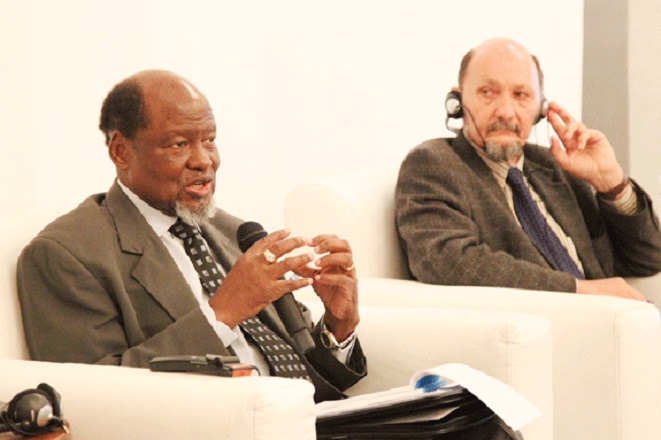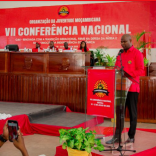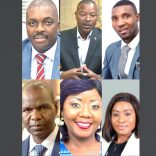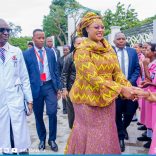Mozambique: President warns of threat from 'wave of disinformation'
Chissano on governance in Africa: Lack of resources engenders interference – Mozambique

Noticias / Mozambique's former President Joaquim Chissano
Former Mozambique president Joaquim Chissano said yesterday in Maputo that African countries should mobilise their own resources to implement their governance plans, and abandon systematic recurrence to donors who end up imposing processes.
Speaking at a seminar on Peace and Security in Southern Africa in a public dialogue with academics, politicians and magistrates, Chissano explained that only through utilizing their own resources would African countries be able to carry out their own governance programs without any external interference.
One obvious example was elections, which most African countries, if not all, are dependent on foreign aid to undertake.
“Countries continue to fail because we still do not trust our own strength. We do not trust our own resources. We have to mobilise resources to stop being dependent on others. Inevitably, countries that grant aid dictate rules on how these electoral processes should be conducted,” Chissano said.
The former president said that he himself had endured this pressure from donors who. because they had financed it. wanted to influence how the election process should be undertaken.
“I myself, as president of the Republic, was told by an ambassador that his country had contributed a lot of money to the election and therefore wanted to dictate the rules. This was an offence. For me, it had to be Mozambicans and it must be Mozambicans who dictate their own course. But all this is because we do not have sufficient of our own means to carry out our own processes,” Chissano said.
For Chissano, this issue covers all countries of the Southern African Development Community (SADC) who do not have the means to finance their own elections.
“We remain dependent on the outside. No one has money to act freely and independently. This is not only a problem within the SADC. It is all the member countries of the African Union who lack funds and have recourse to donors. This will lead them [donors] to dictate rules whenever we conduct these and other programs. So, we have to create our own resources so that we ourselves are the ones who dictate how our processes take place,” Chissano explained.
The lecture yesterday was organised by the Friedrich Ebert Foundation and the Security Management and Defence Network of Southern Africa for the launch of a book entitled ‘Southern African Security Review’. The work offers reflections and analysis for policy makers and academics on the major challenges facing security and peace policy in the region.
The Friedrich Ebert Foundation has a presence in 100 countries around the world, and has been represented in Mozambique since 1985.













Leave a Reply
Be the First to Comment!
You must be logged in to post a comment.
You must be logged in to post a comment.